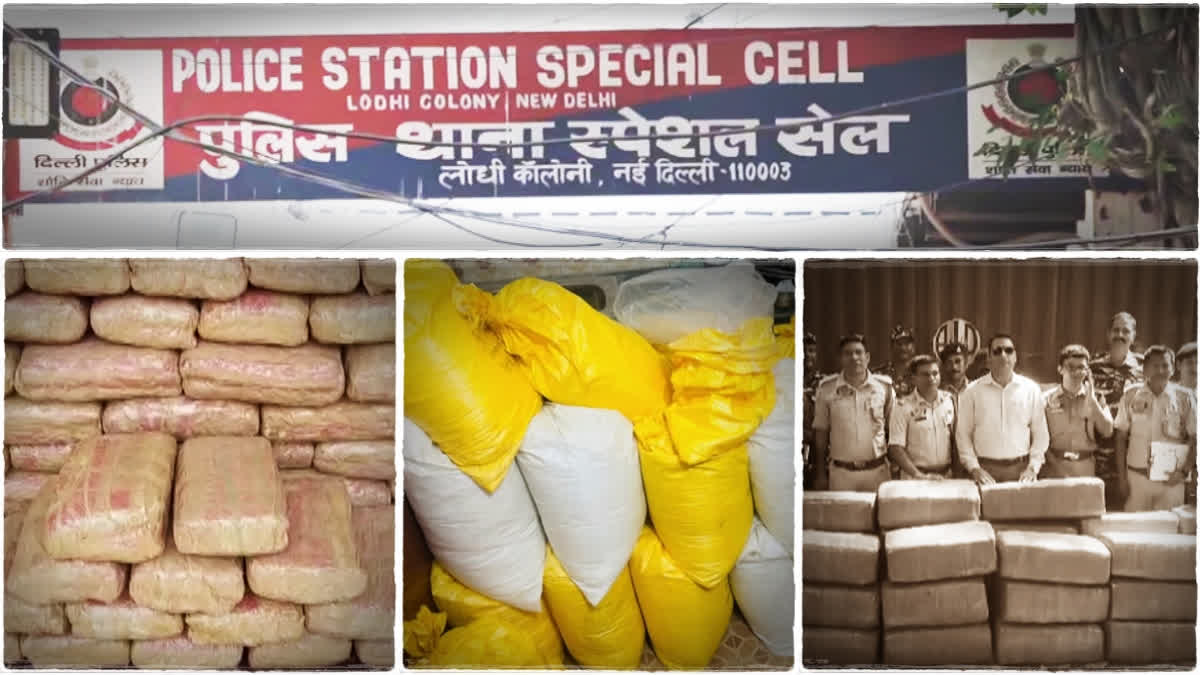New Delhi: The Delhi Police on October 2 made one of the biggest drug busts ever seen in the city, seizing over 560 kilograms of cocaine and 40 kilograms of hydroponic marijuana estimated to be worth around Rs 5,620 crore. In Gujarat, a joint operation by Delhi Police and Gujarat Police led to the recovery of 518 kg of cocaine worth Rs 5,000 crore.
These and other major drug busts across India have led to the seizure of massive quantities of cocaine and other narcotics. According to experts the drug cartels involved in these recent busts operate through complex international networks and pose a significant threat to the country.
"In India drug trade is a very complex and multi-faceted issue, often involving international gangs, and even domestic syndicates. Apart from that, India lies between Golden Triangle and Golden Crescent. This includes Myanmar, Lagos, Thailand, and bordering areas of India, like Nepal, Pakistan, and other countries, because our international borders are very porous," Ved Bhushan, former ACP, Delhi Police said.
"Apart from that, the domestic network works in all this drug mafia. Local syndicates and criminal gangs play a crucial role, in getting drugs into India," he said.
L N Rao Advocate and former DCP Delhi said the frequency of seizure of drugs depends upon the information network. "In recent cases, there was information from the intelligence agencies and with the help of coordination of intelligence agencies and special cell of Delhi police, they were able to seize huge quantity of drugs," he said.
Under India's Narcotic Drugs and Psychotropic Substances Act (NDPS), 1985, drug trafficking is a serious offence. Penalties include lengthy imprisonment, substantial fines, and the seizure of assets.
The NDPS Act gives authorities the powers of arrest and details how the investigation should be undertaken in such cases. "In this Act, everything has been explained. The arrest process is that whenever any person is found in possession or in abetment of such type of crime or financing such type of crime, then he can be arrested by police officers, not below the rank of head constable and other officers of the similar department like DRI or customs," Rao said. (PTI video inputs)



